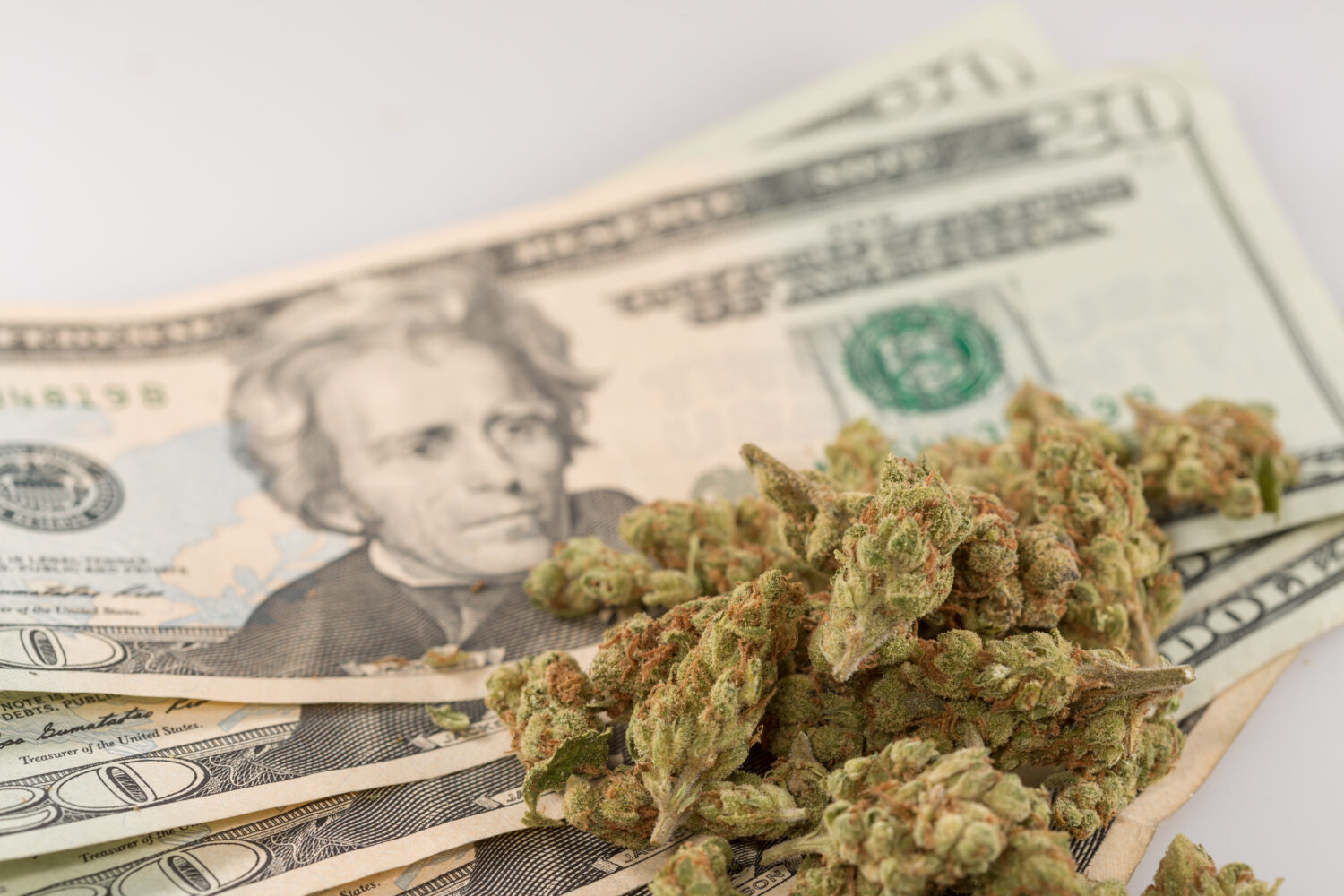The Internal Revenue Service (IRS) has issued a new memo clarifying the rules for reporting large cash payments between marijuana businesses, which the agency says should not automatically be considered “suspicious” just because of the federally prohibited nature of the industry.
In the memo, IRS says it is responding to a request for guidance on how cannabis businesses should approach Form 8300, a document that must be completed when a company receives a cash payment of $10,000 or more.
“The memorandum provides guidance on many of these issues in a question-and-answer format,” Charles Hall, special counsel with IRS, said. “We are working on additional guidance on questions related to cash couriers/armored cars who transport cash between growers/manufacturers and dispensaries/sellers.”
The document contains advice on a variety of compliance considerations, including best practices for identifying the type of business that received the cash payment. It says companies could disclose that their relation to “marijuana,” but those that don’t wish to specify could choose different categories that “might be more fitting” such as general agricultural product classifications.
Notably, while the federal Financial Crimes Enforcement Network (FinCEN) has longstanding guidance requiring financial institutions to file suspicious activity reports (SARs) for cannabis business clients, IRS said that, for its purposes, businesses shouldn’t check off a box reserved for suspicious cash transactions just because they’re involved in the marijuana industry.
“Is it reasonable for a legalized substance business to check the suspicious activity box simply because of the type of product they deal with?” the question prompt says.
“Answer: No. When marking the suspicious activity box is purely done defensively, much like a Money Service Business filing defensive Significant Activity Reports, this is an abuse of the use of that box. If they are solely marking the box because of the industry and for no other reason, this is not an appropriate use of the box. If a business is checking the box in these circumstances, the agent should inform them that continuing to check the box could result in penalties for inaccurate forms. Of course, this depends on the facts and circumstances in each case.”
The guidance, which is dated January 22 but was first posted online this month, also runs through a number of hypothetical scenarios related to Form 8300 in the context of cannabis companies. For example:
“Scenario 1: Company A is marijuana manufacturer. Company A established a subsidiary, company B, as a distributor in charge of cannabis sales. Company A and company B are separate legal entities (different EINs). Company B gives cash to company A for the purchase of products to sell. Is a Form 8300 required?
Scenario 1 Answer: As the cash was received in the course of business and the entities are separate legal entities (have different EINs) then a Form 8300 is required to be filed by company A for the receipt of the cash from company B when it’s over $10,000.”
It doesn’t appear that the memo, which specifies that it “may not be used or cited as precedent,” represents any kind of policy change, but it is another example of how the state-federal marijuana law disconnect continues to create confusion requiring industry-specific guidance.
Rep. Earl Blumenauer (D-OR), founding co-chair of the Congressional Cannabis Caucus, praised the IRS for “showing the leadership we need from federal agencies.”
“This is a small but consequential and common-sense step forward in how our tax system treats state-legal cannabis businesses,” the congressman told Marijuana Moment on Tuesday.
Federal law might prohibit cannabis, but tax policy still requires people to report and pay taxes on income derived from the sale of controlled substances, including through state-licensed marijuana business or the unregulated market.
However, marijuana businesses are prohibited from taking federal tax deductions from that income, regardless of state licensing, under an IRS code known as 280E. The agency clarified that policy for medical cannabis businesses in 2022.
Industry stakeholders are hoping to see that change sooner than later, as the Drug Enforcement Administration (DEA) works to complete a review into cannabis scheduling. The U.S. Department of Health and Human Services (HHS) recommended that DEA move marijuana to Schedule III under the Controlled Substances Act (CSA), which would free up cannabis businesses to take those deductions that are available to other traditional markets.
Marijuana companies have also faced unique challenges in accessing the banking system and other financial services due to the prohibited status of cannabis under federal law. To that end, Senate Majority Leader Chuck Schumer (D-NY) told Marijuana Moment this month that passing bipartisan cannabis banking legislation to fix the issue is among his priorities to tackle ahead of November. (Full Story)

